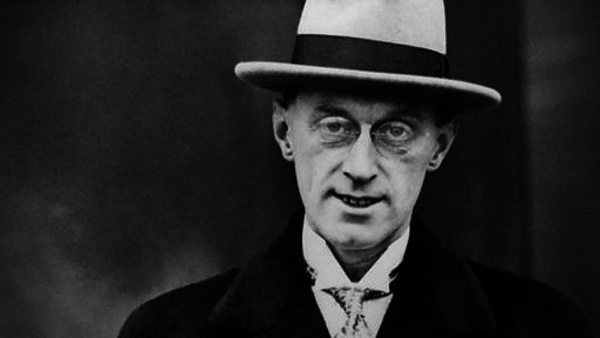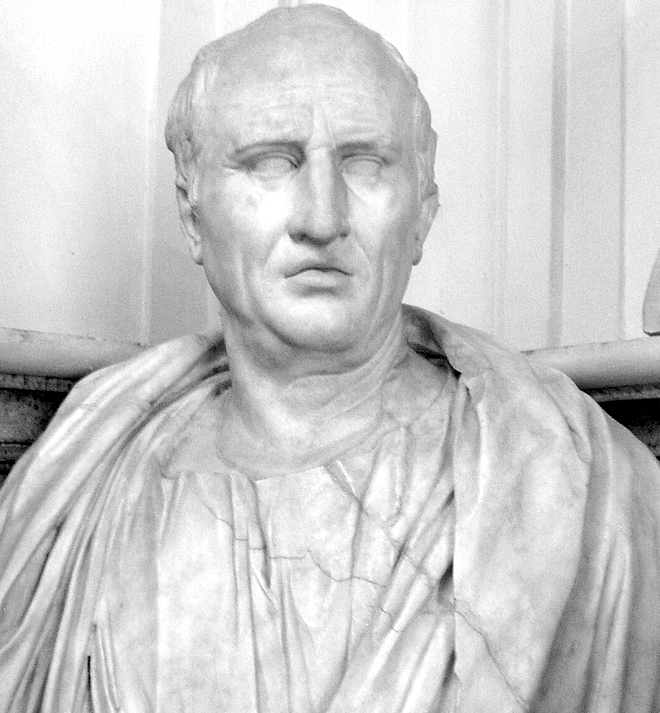Cross examiners advised not to get too cross ... The art of confronting, probing and insinuation ... Peter Lyons reviews the techniques of some notable advocates
IT'S called the Code Red scene.
Tom Cruise is Lieutenant Kaffee and he's cross-examining Jack Nicholson. It's supposed to be Colonel Jessep, but it's really Jack.
It's pretty clear that Kaffee hasn't been trained by the National Institute for Trial Advocacy.
He is angry.
"Colonel Jessep. Did you order the Code Red?"
"You want answers?" yells Jack.
"I think I'm entitled."
"You want answers?"
The lieutenant screams, "I want the truth!"
Nicholson: "You can't handle the truth!"
Then, unfortunately for the cross-examiner, the witness delivers a spell-binding and quite persuasive speech which lasts for more than a minute.
Undaunted, Kaffee shouts the "Did you?" question again and moves menacingly towards the witness.
It works. He gets the "Yes" answer and Jack growls, "You're damn right I did!"
I teach advocacy. We have all had a Tom Cruise on our courses, well perhaps not in the looks department, but there is often a student who thinks cross-examination should be done Hollywood style.
Regrettably, the Cruise routine is seen by lawyers over this side of the lagoon as a typical of American attorneys. I know it's wrong and you know it's wrong, but perceptions are sometimes tough to shift.
Of course, the British have had their share of aggressive cross-examiners like Sir Patrick Hastings and George Carman. The Europeans as we shall see, particularly arbitration lawyers, are not keen on robust witness demolition.
Advocates have a number of weapons in their arsenal. As surely as the punishment should fit the crime, lawyers must know which technique is best suited to deal with the behaviour of an awkward witness.
Choosing the wrong weapon may well backfire on the cross-examiner.
It helps to look at the purpose of cross-examination. Those who are ignorant of effective advocacy think the purpose is to trip the witness up or argue with them until they admit to the murder.
But, the first aim is surely to strengthen your client's case by highlighting the good points through the opponent's witness and by putting facts that the witness will agree with, or at least, not dispute.
Such constructive cross-examination can also be used to elicit new meanings or new facts. (Marcus Stone; Cross-Examination in Criminal Trials; Tottel Publishing 3rd ed. 2009.)
Shouting at the witness or attacking their credibility is hardly likely to achieve these aims.
The second purpose of cross-examination is to undermine or discredit your opponent's case by showing the witness's evidence is unreliable.
If you think about it, the most important policy behind all the rules of evidence is to try to make sure that what is presented to the court is reliable.
You can show a witness's evidence is unreliable in a number of ways: by demonstrating the witness is mistaken, incompetent, lazy, unprepared, lacking authority, speculating or biased.
The list is not exhaustive. They are effective objectives to argue in your closing statement.
Yet, the most prevalent objective in the eyes of the inexperienced lawyer is to show that the witness should not be believed because he or she is lying. A lying witness is a gift to a skilful cross-examiner, but they don't come around that often.
In any event, aggression with a lying witness will rarely be effective and could be counter-productive. If a witness has given a false account of something said out of court then saying quietly to him, "That wasn't true, was it?", is much more powerful than screaming, "You're a liar!"
The great Norman Birkett KC was famous for delivering well-mannered but lethal cross-examinations.
 Birkett: affected fumbler
Birkett: affected fumbler
His clerk of 20 years, A.E. Bowker wrote in Behind the Bar, Staples Press, 1947:
"Never once did I know him to enter a court without a perfect thorough knowledge of his brief. Nor can I recall any occasion when he had 'words' with the bench or his opponent. Neither, indeed, can I recollect any witness whom he did not treat with courtesy and politeness, even though he might challenge the evidence they gave."
One of Birkett's regular clients was a newspaper editor called Geoffrey Williamson. He said Birkett ...
"always put on that benevolent rather, silly-ass manner in court; fumbled with his papers, dropped his pencil and allowed his glasses to fall forward on his nose - that sort of thing. He knew the usefulness of being under-estimated."
Dennis Bardens in his book Lord Justice Birkett (Robert Hale 1962) said:
"An over-confident opponent tends to neglect his defences. How often have I seen him approach a witness with an air of 'I don't quite understand this yet, but I know you'll make it clear' attitude; as though by inference he would accept uncritically whatever answer was forthcoming.
The witness would fall for it; admission would follow admission, the true significance of each being lost on the witness, until like a thrust with a rapier, Birkett would administer the coup de grace with one final, fatal question."
In his presidential address to the Holdsworth Club in Birmingham (1954) Birkett said that an advocate should be able at all times to control his temper.
"He should be severe when severity is demanded, and he should be gentle when gentleness brings its own rich rewards."
This implies that different witnesses and situations call for different styles from the advocate.
Whenever I teach in the United States, I am always amused at the students who can't wait to use impeachment as a weapon in cross-examination.
They have barely mastered the skill of short, closed questions and yet there they are, diving for the nuclear button.
I saw one student in Indiana cross-examining a witness in a warm-up traffic case.
"The light was green?"
"Well ..."
"This isn't the first time you've been asked about this?"
I advised him to let the witness deny it first.
There are many reasons why a witness might be difficult. It could be that they have misheard or misunderstood the question. Aggressive cross-examination would look like bullying.
In addition, it may be that the question is not tight and the witness can slip through.
One of Irving Younger's Ten Commandments is Thou Shalt Not Quarrel with the Witness.
If the witness is argumentative, the cross-examiner will make them look worse by remaining calm.
In England, where everything that's good was supposedly invented, the Bar Rules are plain. A barrister:
(a) is personally responsible for the conduct and presentation of his case and must exercise personal judgement upon the substance and purpose of statements made and questions asked; and ...
(g) must not make statements or ask questions which are merely scandalous or intended or calculated only to vilify insult or annoy either a witness or some other person.
On the European continent, particularly in arbitrations, aggressive cross-examination is seen as bullying. According to Redfern and Hunter, 5th edition, par 6.209:
"The interests of justice are not well served by the transcripts of the interrogation of frightened witnesses by skilled and manipulative cross-examiners."
The Lawyer's Duty to Arbitrate in Good Faith, 2001, was a speech delivered by arbitration barrister V.V. Veeder Q.C. He said that ...
"arbitrators tend to discount severe or bullying cross-examinations on the basis that it demonstrates no more than the cleverness of the cross-examiner rather than the lack of credibility of the witness."
In his excellent book, The Technique of Advocacy, (Butterworths 1991) John Munkman discusses different styles of cross-examination.
He says that successful cross-examination is based on three main techniques: confrontation, probing and insinuation.
Confrontation means presenting the witness with a mass of damaging facts which he cannot deny and which are inconsistent with his evidence. It is appropriate in big cases, but in smaller cases it becomes a method of firm insinuation.
Probing means a detailed examination of the story to discover flaws.
Insinuation is the creation of a different version of the evidence which strengthens the cross-examiner's case and "draws the sting" from the direct evidence.
Munkman gives many illustrations of these skills, which he takes from major trials.
There are some commentators like Richard Du Cann who believe that "style in cross-examination does not matter at all. What matters is effect."
The soothing approach will not work with a clever, criminal witness - see: The Art of the Advocate; Penguin; Revised Edition 1993.
Sir Patrick Hastings was an unusual but highly successful advocate. He did not believe in taking notes. He would walk the streets of legal London the night before a trial, gathering his thoughts and planning his attack.
When the witness was being examined, Hastings would look at him intently, sizing him up. Then he would deliver a series of brusque, rapid questions. They had the effect of building the case against the witness.
Before sitting down, he dealt with the loquacious Professor Harold Laski with the memorable line:
"I'm afraid you must go on by yourself, Mr Laski. I cannot go on."
Du Cann is convinced that whatever the style of the advocate, the need for painstaking preparation is paramount.
One should be careful to watch advocates in court and learn from their errors or lapses in style. But it also pays to read widely of skilful advocates from the past. We tend to think we are more civilized because we have computers and television.
 Cicero: keen on Powerpoint
Cicero: keen on Powerpoint
But the advocates of the past were presented with the same complex human problems. Cicero did not have Powerpoint although a classics professor told me last week he would have grabbed it.
Remember, first impressions are difficult to shift. The judge and jury make up their minds about advocates in the first 30 seconds.
Norman Birkett was renowned for asking clever opening questions. His clerk says he spent days preparing the right form of words.
This brought to mind the British television character, Mrs Merton (played by Caroline Aherne) who interviewed Debbie McGee the blonde, very attractive assistant of TV magician Paul Daniels.
Daniels married her when he was 50 and she was 30. He was five feet five inches and bald.
Mrs Merton's opening question is legendary:
"What first attracted you to the millionaire, Paul Daniels?"
Being polite does not mean being weak. Still, no matter how hard one tries to be well-mannered, there are pitfalls.
Many advocates introduce a cross-examination by mentioning the name of the witness.
I taught for the Law Society in Hong Kong a few years ago. Some lawyers on the course had interesting names.
A man of 50 was called Peter Pan. Another, playing a witness, was addressed by his cross-examiner who chose courteously to begin with his name. The effect was not quite what the lawyer had been looking for.
"Yiu Lai!"
About the writer
Professor Peter Lyons of CPD Training (UK) is an Australian barrister who has lived in England for 20 years. Formerly of Nottingham Law School and the University of Law, Professor Lyons has taught advocacy for many years on public courses and to some of the top law firms in the world in the United States, Austria, France, Italy, Switzerland, Hong Kong, Singapore, Spain, the Netherlands, Australia, the Czech Republic, Ireland and the United Kingdom.